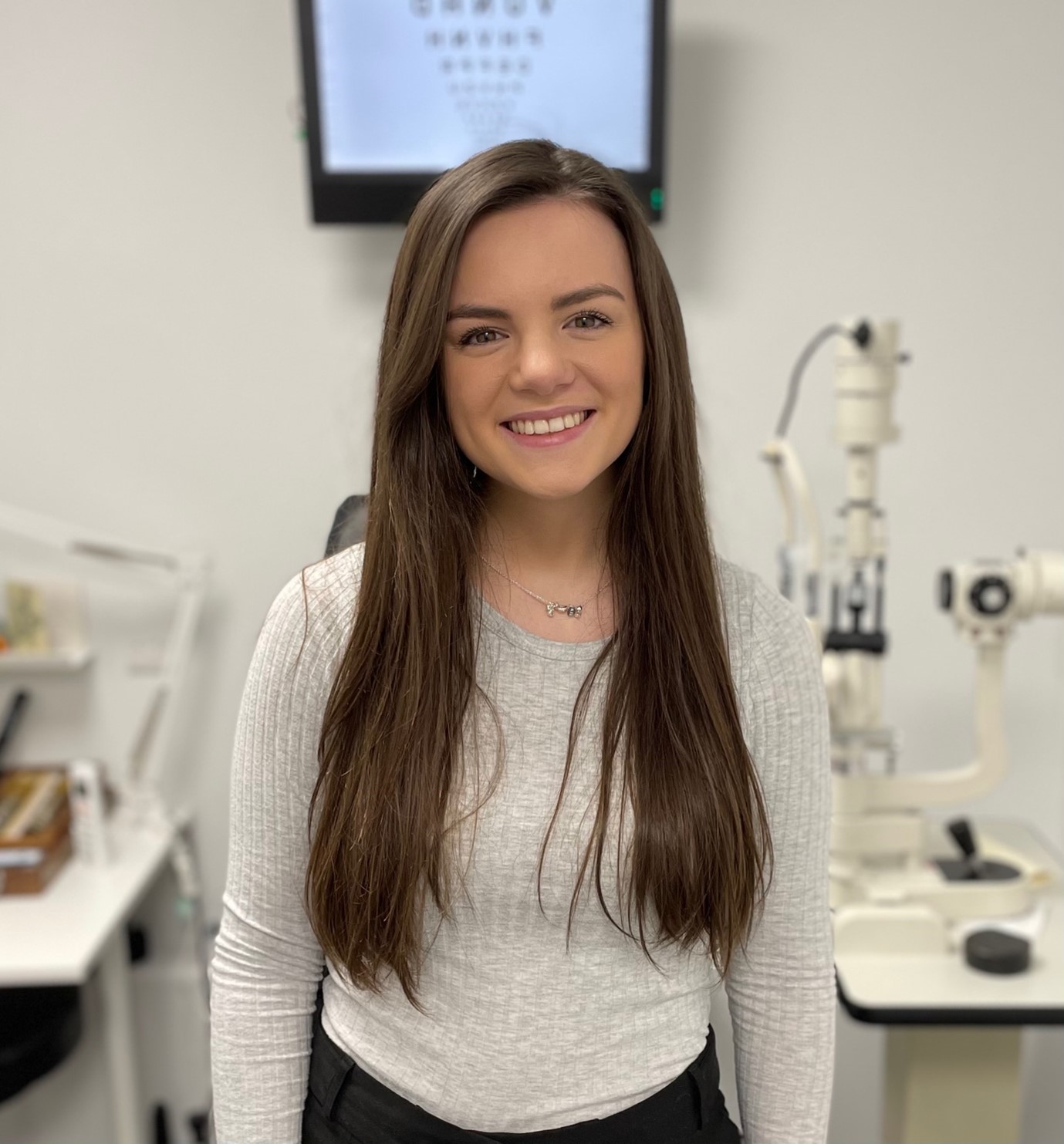Working As An Optometrist - Lucy Davies
Lucy Davies - Newly Qualified Optometrist
Articles
My name is Lucy and I have recently qualified as an optometrist and work in the South Wales Valleys.

Lucy Davies
My job involves seeing many patients every day and responding to any problems that they may have. Patients may present with acute eye emergencies, longstanding problems or for routine sight tests/contact lens appointments and each and every appointment is very different.
If a patient presents with a problem, I may be able to manage the condition in practice, or, it may require me to refer on to another healthcare professional. Sometimes this means sending a routine referral letter to the GP, but other times it means ringing the local eye casualty department for the patient to be seen immediately!
Many patients present with blurry vision can be corrected easily with a pair of glasses. Therefore, one of the most important aspects of my job is carrying out a refraction, where I determine whether a patient has a prescription and needs glasses.
Sometimes, during a routine appointment, I may notice changes in my patient’s eyes which indicates that they have an underlying health condition, such as high blood pressure, high cholesterol and diabetes. If I notice any of these changes it is important that I contact their GP and ask them to carry out further investigations. Therefore, as an optometrist you are not only screening each patient for ocular abnormalities, but you also have a responsibility to screen for any general health concerns too.
One of my favourite things about the job is the variety of different patients I see every day. I may see a 95-year-old for a sight test and then my next patient may be a one year old. This means that for every patient I have to adapt and adjust the way I carry out the examination to make sure that I have all the information I need to manage any problems that they may be having.
Sometimes I may notice changes in a patient’s eyes that requires further investigations. I will then bring these patients back in on another day to carry out additional testing. An example of this would be using drops to dilate the pupils of a patient who has cataracts, to check that all other structures in their eyes are healthy, prior to referring them to the hospital for cataract surgery.
Additionally, if I am concerned that a child has a large prescription, I can also carry out a different type of refraction, using another type of eye drop, which allows me to make sure that I know exactly what strength of glasses they need. This can be particularly helpful in very young children who aren’t able to communicate and answer the classic questions of “is it better with one or two?” etc.
Being an optometrist is a very interesting and exciting career and I would highly recommend it to anyone who is interested in a career in the medical field.
To find out more about my experience check out my ‘careers in optometry’ blog.

